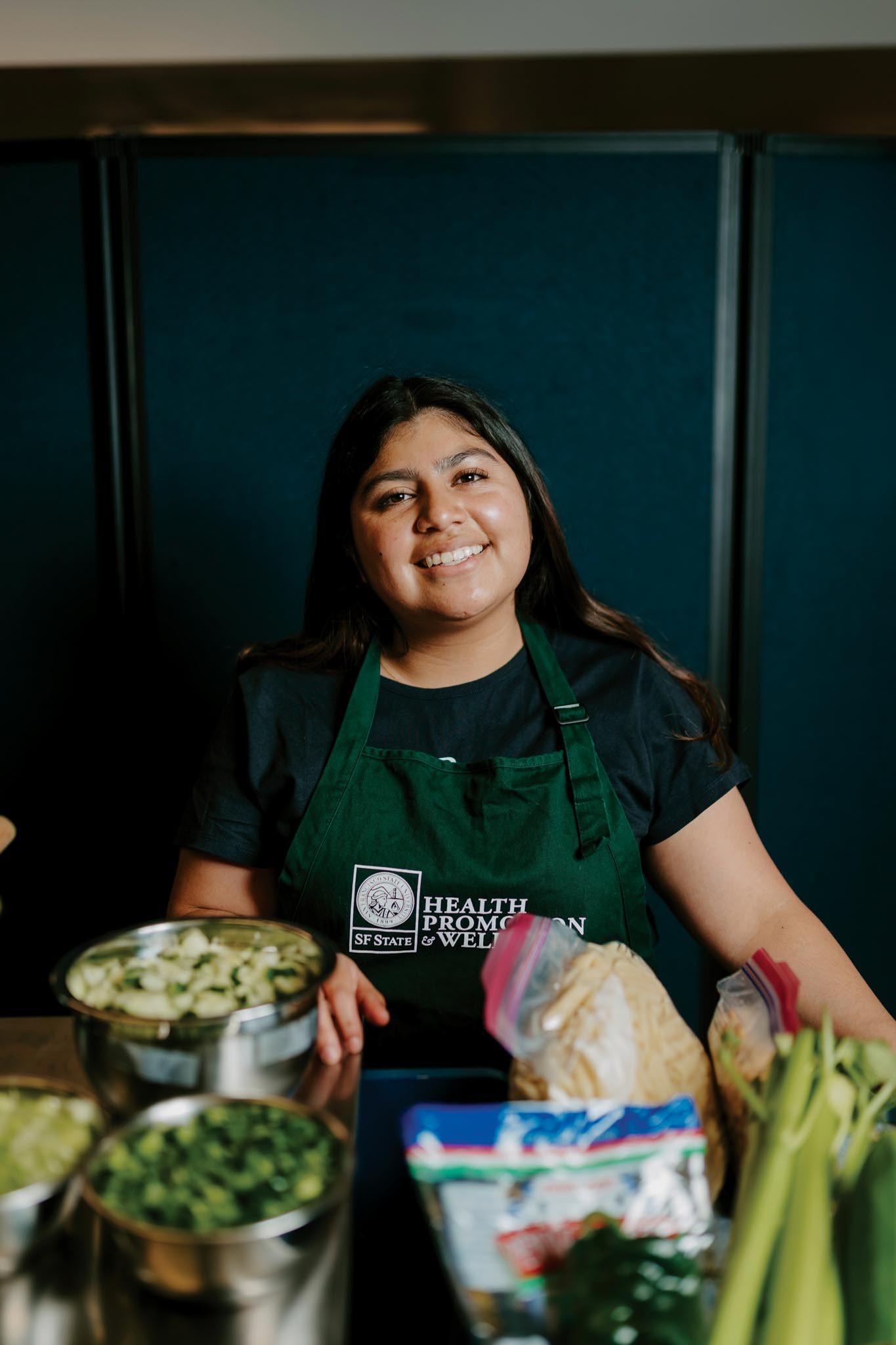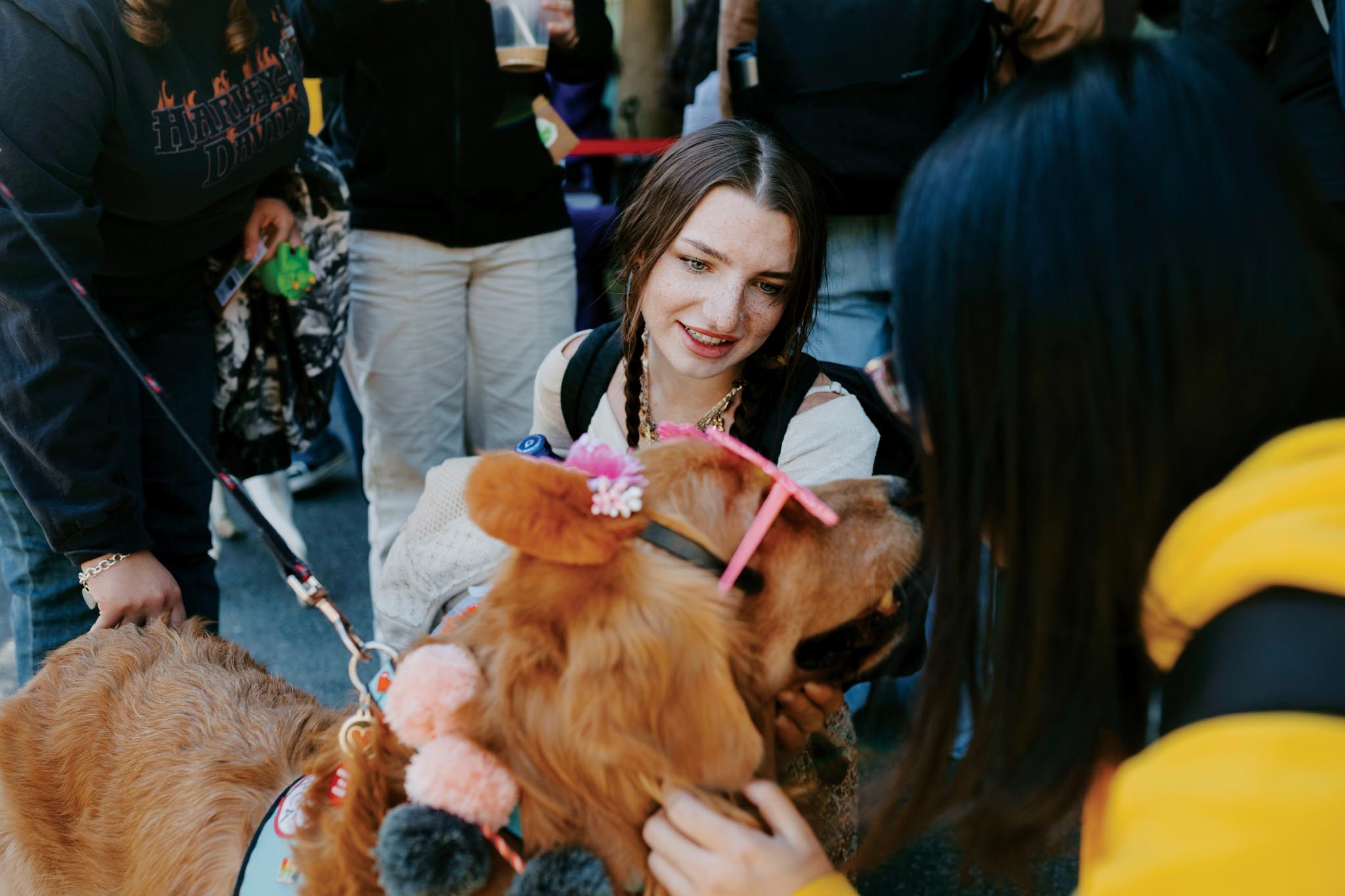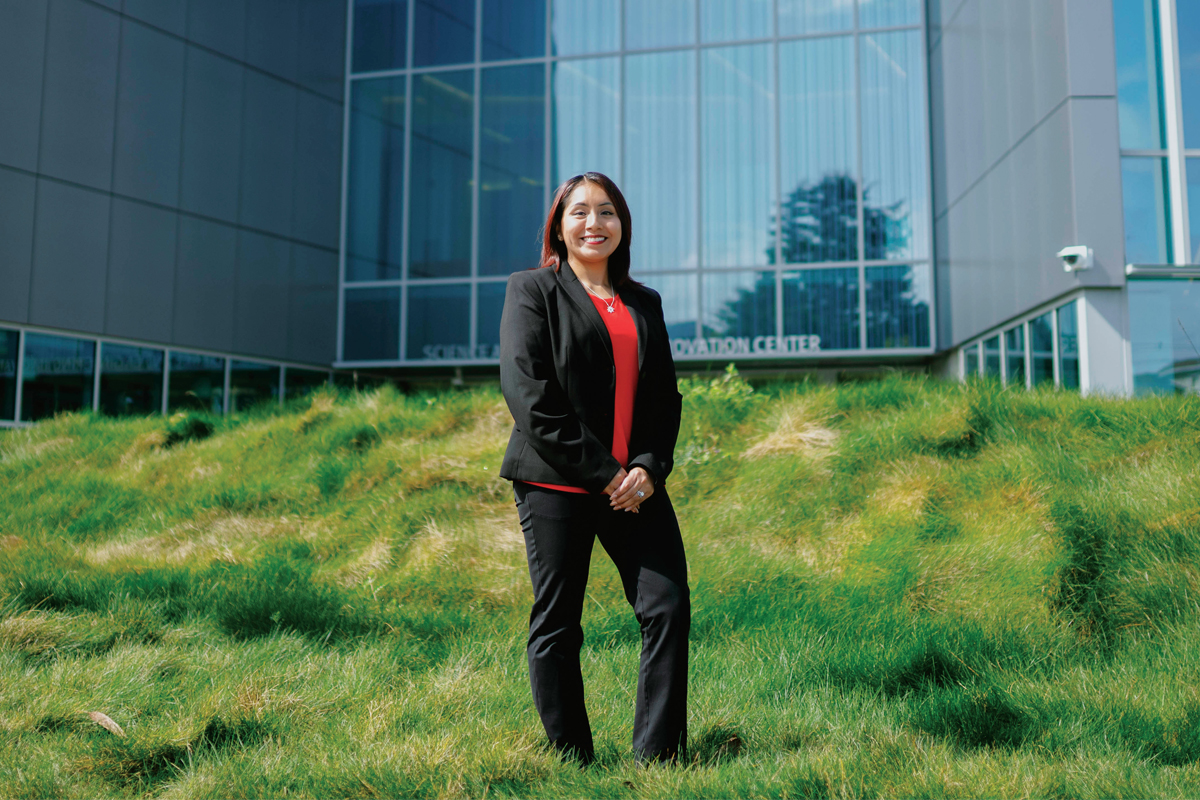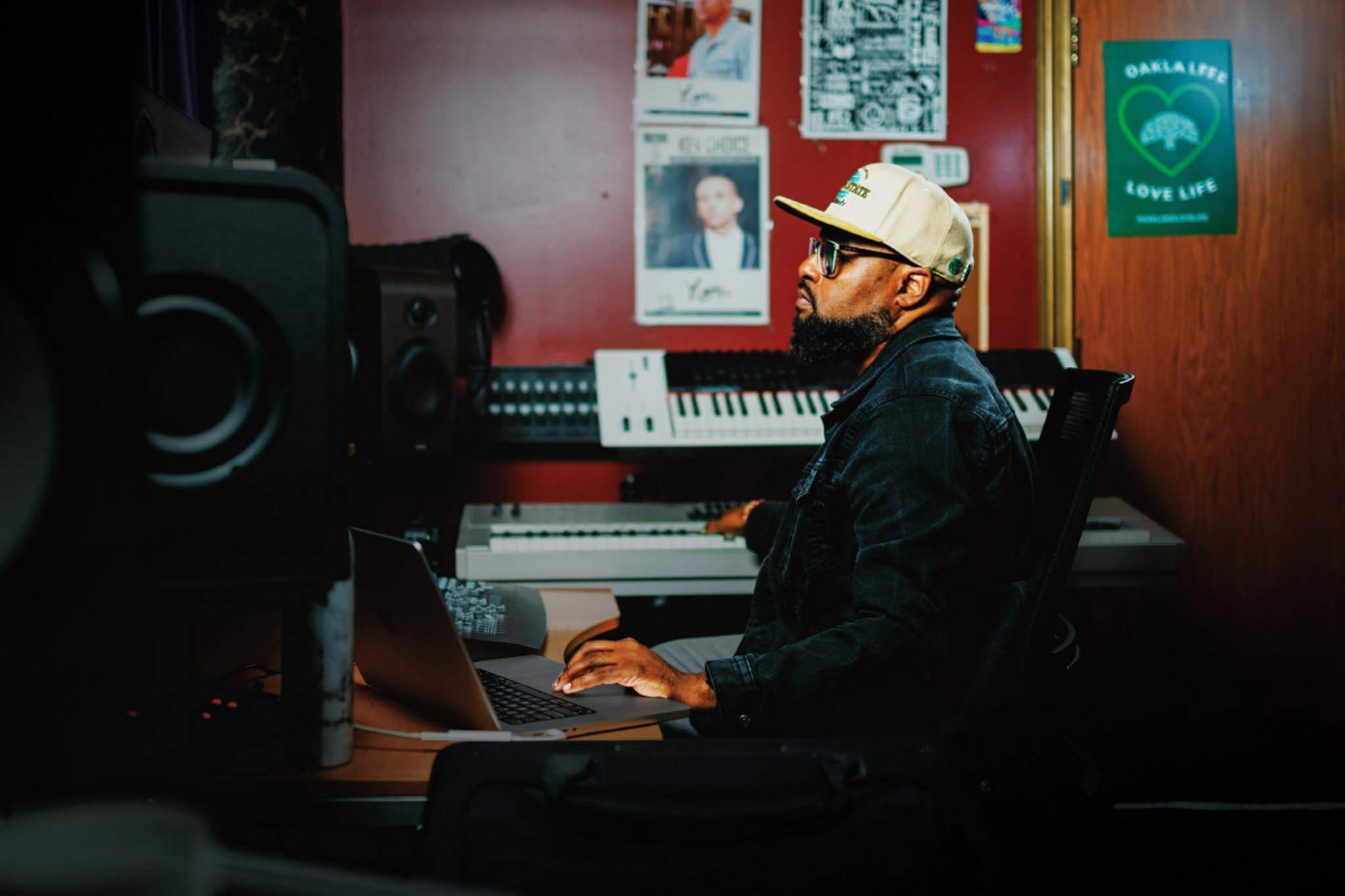Through programs supporting good nutrition, psychological health and other basic needs, the University empowers students to succeed
Words by Kanaga Rajan
It’s hard to feed your mind and soul when your stomach needs feeding, too. And hard to run the academic marathon it takes to graduate with a stomach full of Doritos and Red Bull.
At SFSU, fortunately, students don’t have to do either. There’s a cornucopia of programs and services designed to give them the nourishment they need — for their bodies, their minds and their spirits.
For instance, SFSU’s Associated Students provided free groceries to over 1,000 individuals this February via their Gator Groceries and Food Pantry programs. The University’s Health Promotion and Wellness (HPW) also does free cooking demos on the Quad so students can use the groceries to make nutritious meals. Partners in the Basic Needs Center provide additional complementary programs. Last spring alone, they reported 2,300 visits to CalFresh Fuel stations, 430 CalFresh applications completed and over 800 emergency meals issued

“We have such an amazing group of partners in this work across campus and a strong network of services and resources crucial to supporting our students holistically so they can thrive and continue to grow at SFSU,” says Sara Flynn, interim director of the Basic Needs Center, which provides food, housing and financial crisis support.
The Basic Needs Center and the University’s GatorHealth and Wellbeing units collaborate to strategize, centralize and support many of the campus’ wellness efforts. This spring to better serve students, the three units that make up GatorHealth — HPW, Student Health Services and Counseling & Psychological Services — moved to the new Gator Student Health Center in SFSU’s recently opened West Grove Commons. That positions these services side-by-side with housing for hundreds of first-year students.

In 2023 – 24, HPW had over 84,034 interactions with students via health programs, activities, tabling, workshops, consultations and more. These interactions provided education about everything from self-care and stress management to resources such as Gator Groceries and the Food Pantry, sexual health, mental health and substance use. This list is constantly growing and evolving, in part thanks to the over 100 student leaders or volunteers in HPW’s Peer Health Leadership program.
“Each student leader works on a special project. I am planning to facilitate a workshop on the first-generation experience with mental health,” says sophomore Psychology major Hosna Zaman, one of HPW’s mental health education student assistants. “I’m also firstgeneration, and part of my role gives me the opportunity to focus on areas that are more immediate to me or those I believe are not receiving enough attention"
Although accessing basic health services is important, there’s a lot more to wellness and holistic wellbeing, says HPW Director Karen Boyce, adding that the biggest challenge is often related to what’s happening in students’ environment. “There’s also parts of wellbeing that are about relationship, feeling connected to a community and just having fun,” she adds.
That’s why SFSU’s wellness groups partner with academic units, affinity groups, student organizations, community partners and anyone and everyone interested in supporting student wellness. The emphasis is on tailoring wellness messaging and resources to increase awareness and accessibility, and destigmatizing asking for help.
“A big factor of wellbeing is making sure you have the right social support. One that entails your interpersonal connections, your community and other spaces that help you interact with the people around you,” Zaman says.
Community is a big part of her own wellness journey. She recalls how overwhelming it can be to move onto campus and navigate university life. She highly values her supportive HPW community and their opportunities to build community spaces for peers. She now helps with mental health events like Wags for Wellness, where students can get relief from anxiety with the help of some very special (and furry) campus visitors: certified therapy animals from the San Francisco SPCA (mostly dogs, but occasionally cats, too).
Among their many partnerships, Boyce notes recent work with the Mathematics Department and Equity & Community Inclusion student groups. A partnership with the J. Paul Leonard Library led to the recent launch of a Family Study Room for parenting SFSU students. For the past two years, parenting students have also received priority registration so they can create academic schedules that suit their busy life.
“We can all do something to help promote students’ holistic wellness. You don’t have to be a health professional,” Boyce says.

Features

Lifting Up, Taking Off
Three alumni share how the support they got from SFSU gave them the boost they needed to succeed.

Striking a Chord
Mike Blankenship has turned his love of music into a thriving career — and a calling that he’s sharing with Oakland’s youth.